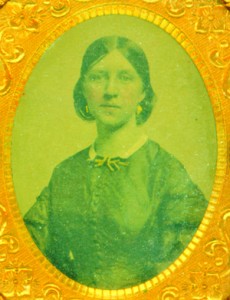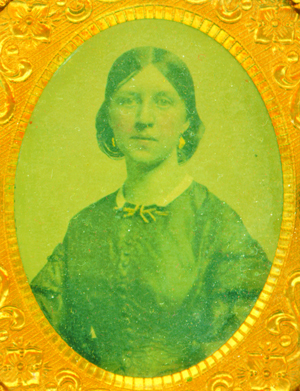By Rob DeHart
Tennessee State Museum
 Mercy Street is set in Alexandria, Va., but it could have easily been set here in Nashville. After the start of its occupation of the city in February 1862, the Union Army established more than 20 hospitals in confiscated schools, churches and private residences in Nashville.
Mercy Street is set in Alexandria, Va., but it could have easily been set here in Nashville. After the start of its occupation of the city in February 1862, the Union Army established more than 20 hospitals in confiscated schools, churches and private residences in Nashville.
By early 1863, wounded and sick soldiers from both sides were pouring into Nashville. Union Army doctors did not always provide the best medical treatment for captured Confederate soldiers. Nashville’s citizens took notice and, as Emma Green did in Mercy Street, a group of women protested the treatment of wounded Confederate soldiers in Union Army hospitals.
As a result, Union commander Robert B. Mitchell issued an order requiring three “secession families” to house 15 wounded Confederates each. Brig. Gen. Mitchell’s order had less to do with his concern for the wounded and more to do with his irritation at the women’s protest, which in his words occurred “through the mud of the public streets of this city unmindful of the inclemency of the weather.” With his order, Mitchell essentially said: Fine. You don’t like how we treat your wounded? Take care of them yourself.

At the time, Alex and Mildred Carter lived in a house on Fourth Avenue between Church and Commerce streets, and Alex owned a business on Union Street that served as a grocery and saloon. The Carters’ home was requisitioned by the Union Army for use as a Confederate hospital just as the Green family’s hotel was in the series. Moreover, the family, not the U.S. government, was made responsible for providing bedding, food and medical supplies for the wounded. Mitchell’s order also came with a threat: If any of the Confederate prisoners of war escaped, the Union Army would permanently take the Carters’ property. Union soldiers stood guard outside the Carter home day and night while Union surgeons visited the wounded.
The Carters’ daughter, Medora, was 23 when the Union Army marched down Broad Street and took control of the city. Medora Carter likely became a nurse very soon after her home became a hospital, but what happened next shows the unpredictability of those times. Just eight months later, Medora married Joseph Stephens, a Union surgeon from Ohio. While we do not know how the family reacted to the marriage, we do know it ended in tragedy in 1865 when Medora died shortly after giving birth to the couple’s only child.
Joseph Stephens returned to Ohio after the war, and census records suggest that the Stephens’ daughter, also named Medora, spent time living both with her father up North and her grandparents in Nashville. Fortunately for posterity, the Carter family preserved Civil War mementos that are now part of the Tennessee State Museum’s collection. These items now help to tell the stories of families who never sent a son to a battlefield, but who felt the loss of war all the same.
Mercy Street airs 9 p.m. Sundays through Feb. 21, with a midweek encore Thursdays at 9 p.m.
Rob DeHart is a curator at the Tennessee State Museum in Nashville where he specializes in technology and cultural history. DeHart received his M.A. in public history from Middle Tennessee State University and is a peer reviewer for the American Alliance of Museums.
